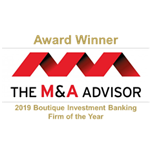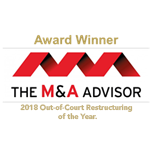Multiple Avenues for Middle Market Company Growth
At the end of 2023, we stepped back and looked at the market — providing our thoughts on what we saw for the road ahead. While the broader industry is still facing challenges such as high interest rates, a lack of quality companies to invest in, more stringent due diligence requirements, and other difficulties, there nevertheless remains a wealth of opportunity — particularly in the middle and lower-middle market where smaller deal sizes are more prevalent (due to such companies typically not being publicly traded) and private equity firms are actively looking for investments.
It’s through this middle market lens that we’ll explore the different types of M&A transactions. It’s important to note that there are many ways to categorize and describe M&A transactions, but many of these apply more to how the deal is structured — e.g. horizontal, vertical, concentric, and so on — rather than what the transaction is meant to accomplish. Here, we’ll be focusing on types of M&A transactions that are common in this market segment and what they’re intended to achieve.
Are you getting the latest market updates from MelCap Partners? We distribute in-depth analysis of where markets stand, recent deals, and other financials on a quarterly basis. Sign up now to make sure you’re on the list.
Types of M&A Transactions Common in the Middle Market
- Platform — A platform acquisition is when a buyer purchases a company that’s already a strong player in its market. This company serves as the foundation for future acquisitions that we’ll explore below. One of the advantages of this strategy is that the target business will have a strong team, great revenue, an established market presence, a recognized brand, proven processes, and systems and tools that are ready to go. Usually, the goal is to grow this business with additional acquisitions and eventually sell it at a higher valuation to a larger firm or company.
- Add-Ons — Add-on acquisitions is a broader category of a few different types of M&A transactions that are executed to support a platform acquisition. The common thread is that these acquisitions help to grow the platform acquisition, but in distinct ways. These include:
- Bolt-On — A bolt-on acquisition is a company that is acquired because it will complement the platform acquisition or enhance it, such as through technology. Bolt-ons usually maintain their own identity and separate operations, but they offer cross-selling opportunities. The platform company may provide some measure of support for the bolt-on as well.
- Tuck-In — A tuck-in is a smaller company that is acquired to help expand the platform company’s revenues, customer base, or capabilities (as opposed to building or expanding them from scratch). These are usually rolled into the platform company. These companies may be rebranded, their processes may be updated, and management teams may change.
- Roll-Up — A roll-up acquisition is a company that is, just as it sounds, rolled up into the platform company. Typically, the platform company will have a process or method for quickly integrating these companies and their teams, capabilities, and customers so that the process is fast and efficient.
Experience That Spans Industries — MelCap Partners has worked with countless companies in markets that range from construction and consumer products to healthcare, industrials, and more. Explore our industry experience here.
An Expert Team to Support Your Middle Market M&A Transaction
Whether you’re a middle market company or a private equity group, MelCap Partners can advise you on your buy-side or sell-side transactions. We’ve helped numerous organizations achieve their goals and have been recognized for our work on a global scale. And as a Globalscope partner, we have dozens of partner firms that can provide the resources needed to make your most important transaction a success.
Connect with us today to learn more about our M&A capabilities for middle market companies.














